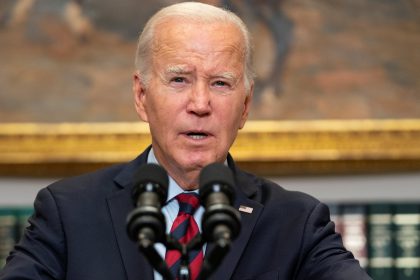Majority of CFOs See US Sliding Into Recession Before 2020 Election

WASHINGTON – A majority of chief financial officers surveyed by Duke University believe the United States will be in an economic recession by the 2020 Election, despite continuing low unemployment.
Fifty-three percent of the 225 CFOs participating in the latest Duke University/CFO Global Business Outlook survey, said the U.S. economy will be in recession in the third quarter of next year, while 67% said the downturn will certainly come by the end of 2020.
One reason for the pessimism is slackening business spending, which typically weakens in the face of economic uncertainty.
The consensus among the CFO’s surveyed is that business spending will increase by less than 1 percent over the next 12 months.
If that comes to pass, it would be the lowest growth in business spending since September 2016, and the second-lowest since December 2009, when the country was in the grips of a major economic crisis.
As it happened, the release of the findings coincided Wednesday with the Federal Reserve deciding to cut interest rates by a quarter of a percentage point, its second cut since late July.
The move suggested the Fed is preparing to act quickly and aggressively if the U.S. economy shows additional signs of weakening.
“Our eyes are open, we’re watching the situation,” Fed Chair Jerome Powell said at a news conference Wednesday.
He also said the Federal Reserve will stop cutting rates “when we think we’ve done enough” to sustain economic growth.
As for Duke University’s findings, Campbell Harvey, a founding director of the survey and professor of finance at the institution’s Fuqua School of Business, said the CFO’s views are consistent with other worrisome indicators of the economy’s vitality, such as the inversion of the yield curve.
“Executives don’t want to be caught unprepared for the next recession like they were in the global financial crisis,” Harvey said in a written statement. “There are plenty of warning signs and now is the time to be prudent. Who wants to put their firm at risk by increasing borrowing to fund a major new project when a recession could be on the horizon? It is no surprise that capital expenditures have dried up.”
The Duke findings align with those of the latest Bank of America/Merrill Lynch Global Fund Manager Survey.
That monthly survey of over 100 global managers found that 38% expect a recession next year, the highest net recession risk since August 2009.
Fund managers continue to expect low growth and low rates and believe the Fed will continue to try to stimulate the economy. The CFO Optimism Index, which historically has been an accurate predictor of hiring and GDP growth, fell this quarter, with 55% of CFOs telling the university’s researchers that they become more pessimistic over the last quarter.
In contrast, only 12 percent of CFOs said they’ve grown more optimistic since the beginning of the year.
“Business optimism has not been this low since September 2016, a time when the unemployment rate was 5 percent,” said John Graham, the author of the report.
He noted “optimism is low in all regions of the world, which exacerbates any slowdown occurring in the U.S.”
The survey found that economic uncertainty fueled by the Trump administration’s trade wars has displaced difficulty in hiring and retaining qualified employees as the top concern among the CFOs.
Around the globe, 81% of CFOs in Africa believe their countries will be in recession by the third quarter of 2020, as do the majority of CFOs in Asia (72 percent), Europe (69 percent), Canada (68 percent), and Latin America (65 percent).
“For the first time in a decade, no region of the world appears to be on solid enough economic footing to be the engine that pulls the global economy upward,” Graham said. “Trade wars and broad economic uncertainty are hurting economic outlooks worldwide.”
At a news conference after the latest Fed rate cut was announced, Chairman Powell acknowledged Fed officials are sharply divided about the wisest course to take on interest rates.
“This is a time of difficult judgments and disparate perspectives,” the chairman said. “I really do think that is nothing but healthy.”
Still Powell knew he was sure to have at least one critic this afternoon, and that critic — President Trump — did not fail to weigh in.
“Jay Powell and the Federal Reserve Fail Again,” Trump tweeted after the modest rate cut. “No ‘guts,’ no sense, no vision! A terrible communicator!”
Updated economic and interest rate forecasts issued Wednesday by the Fed show that only seven of 17 officials foresee at least one additional rate cut this year.
And at least two Fed officials expect a rate hike next year.
The economy is currently forecast to grow a modest 2.2% this year, 2% next year and 1.9% in 2021.
Those forecasts are well below the Trump administration’s projection that the president’s policies will accelerate growth to 3% annually or better.























